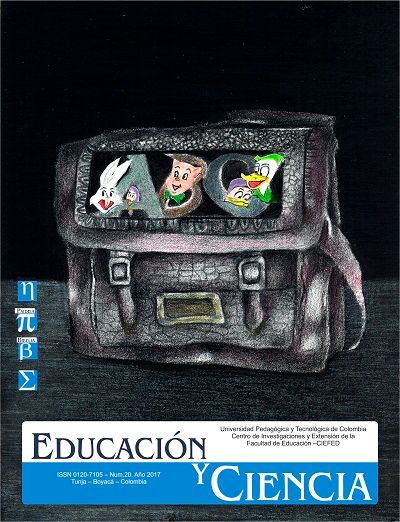Understanding the tale

Abstract
In current education, you cannot continue doing the same tasks and still, pretend to obtain different results; Therefore, it is the teacher’s responsibility to make a self-criticism of their pedagogical work, to improve it. Bearing this in mind, this research article briefly describes the intervention, whose objective is to improve the comprehension processes of the students of the Boyacá School in Duitama Colombia, through the implementation and creation of the stories as a didactic tool. To achieve this, it was necessary first to investigate similar works, together with the appropriate theories that support it, followed by the Educational Research Action phases, obtaining significant results in terms of reading comprehension; For example, students in the process of literacy can already explain with their words, which becomes more evident at the time the student writes, with the intention of being understood by others.
Keywords
understanding, story, language, literacy, GEEMPA.
References
Blythe, T. (2006). La Enseñanza para la Comprensión, Guía para el docente. Buenos
Aires: PAIDÓS.
Cendales, L. A. (2008). Corrientes Pedagógicas. Tunja: ed. Grafiboy.
Fernández, M. (2014). La Enseñanza de las Matemáticas a Través de los Cuentos. (Tesis
de grado). Universidad Pública de Navarra, Navarra, España.
Ferreiro, E., & Teberosky, A. (1989). Los sistemas de escritura en el desarrollo del niño.
México, D.F.: SIGLO XXI.
Fregoso, G., & Aguilar, L. E. (2013). Comprensión y producción de textos como estrategias
cognitivas y metacognitivas en la educación contemporánea. Jalisco, México: Universidad
de Guadalajara.
González, J. (2005). Elaboración Conjunta de Inferencias a partir de Cuentos
Infantiles. Psicología Educativa, 11(2), 113-133.
Grossi, E. (2008). Didáctica de la alfabetización (Vols. 1, 2, 3). Porto Alegre: Paz e
Terra.
Hernandez, R., Fernandez, C., & Baptista, P. (2010). Metodología de la Investigación.
México, D.F.: McGraw-Hill.
Jiménez, M. L., & Gordo, A. (2014). El Cuento Infantil: Facilitador de Pensamiento
desde una Experiencia Pedagógica. Praxis & Saber, 5(10), 151-170.
Londoño Ramos, C. A. (2008). Avateres del constructivismo: De Kant a Paiget.
Historia de la Educación Latinoamericana, (10), 73-96.
MEN. (1998). Lineamientos Curriculares de Lengua Castellana. Recuperado de http://
www.mineducacion.gov.co/1759/articles-339975_recurso_6.pdf
MEN. (2006). Estándares Básicos de Competencias. Ministerio de Educación Nacional.
Perkins, D. (2003). La Escuela Inteligente. Barcelona: GEDISA.
Piaget, J. (1991). Seis estudios de psicología. Barcelona: LABOR, S.A.
Restrepo, B. (1996). Investigación en Educación. Bogotá: ICFES.
Rodari, G. (1983). La Gramática de la Fantasía. Barcelona: Argos Vergara, S.A.
Vygotsky, L. S. (1995). Pensamiento y lenguaje. Barcelona: Paidós.